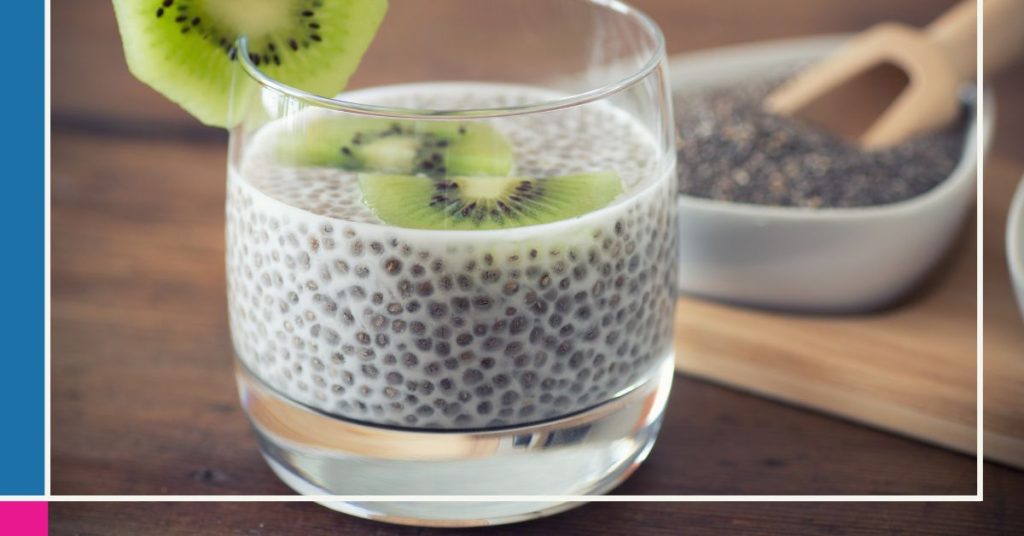Introduction to Marathon Running Nutrition
Marathon running is a demanding sport that requires not only physical endurance but also strategic nutritional planning. At Midlife Runners Paradise, we believe that nutrition is a cornerstone of any successful marathon training plan. The right foods can significantly enhance your performance, support your overall health, and help you achieve your running goals.
Nutrition plays a crucial role in how your body performs during a marathon, a half marathon, or any endurance run. Eating the right foods can provide the necessary fuel to keep you going strong from start to finish. It helps in maintaining energy levels, supporting muscle recovery, and preventing injuries, which are vital for both seasoned runners and those new to long-distance running.
Our approach at Midlife Runners Paradise focuses on fostering resilience, health, and joy through our comprehensive running and nutritional framework. We emphasize heart-based training, balanced strength exercises, and strategic run/walk routines, all underpinned by a solid nutritional foundation. This holistic approach ensures that you are not only prepared for the physical demands of marathon running but are also equipped to enjoy the journey, making it a sustainable part of your lifestyle.
In this article, we’ll introduce you to five power foods that are essential for marathon runners. These foods are chosen for their ability to provide sustained energy, enhance recovery, and support overall well-being. By incorporating these into your diet, you can optimize your performance and ensure a more enjoyable and successful running experience.
Stay with us as we delve into the specifics of marathon running nutrition and discover how these power foods can make a significant difference in your endurance training. Whether you are preparing for your first half marathon or aiming to conquer an ultra run, the right nutrition will help you every step of the way.
Power Food #1: Bananas
Bananas are a staple in the diet of many endurance athletes, and for good reason. As part of a well-rounded marathon running nutrition plan, bananas offer several key benefits that make them ideal for long-distance runners.
Firstly, bananas are rich in potassium, an essential mineral that helps regulate fluid balance, nerve signals, and muscle contractions. For marathon runners, maintaining proper potassium levels is crucial to prevent muscle cramps, a common issue during long runs. Consuming bananas can help keep your muscles functioning smoothly, reducing the risk of cramps that can hinder your performance.
In addition to potassium, bananas provide a quick source of energy due to their high carbohydrate content. These natural sugars are easily digestible and can provide a rapid energy boost when you need it most. This makes bananas an excellent pre-run snack or a mid-run refuel option during long training sessions or races.
Bananas also contain vitamin B6, which aids in energy metabolism and the formation of hemoglobin, ensuring that your muscles receive the oxygen they need during endurance activities. Moreover, their convenient packaging makes them easy to carry and consume on the go, fitting seamlessly into your marathon running nutrition strategy.
Incorporating bananas into your diet can help you maintain energy levels and prevent cramps, supporting your overall performance and well-being during endurance runs.
Power Food #2: Oatmeal
Oatmeal is a powerhouse food for runners, making it a staple in marathon running nutrition. Packed with complex carbohydrates, oatmeal provides sustained energy, which is crucial for long-distance running. These carbs break down slowly, releasing a steady stream of glucose into your bloodstream, keeping your energy levels stable throughout your run.
One of the standout features of oatmeal is its versatility. You can customize it to suit your taste and nutritional needs. Add fruits like berries or bananas for an extra boost of vitamins and minerals. A sprinkle of nuts or seeds can enhance the protein content, aiding in muscle repair and recovery. This adaptability makes oatmeal an ideal pre-race meal that can be easily tailored to your preferences and dietary requirements.
Oatmeal is also easy to prepare, making it a convenient option for busy mornings or quick meals before a training session. Simply cook it with water or milk, and add your favorite toppings. Its simplicity doesn’t compromise its nutritional value, as oatmeal is rich in fiber, which helps maintain digestive health and keeps you feeling full longer.
Incorporating oatmeal into your diet can help ensure you have the energy needed for a half marathon or any endurance event. Its combination of sustained energy release, versatility, and ease of preparation makes it a perfect choice for marathon runners looking to optimize their nutrition and performance.
Power Food #3: Sweet Potatoes
Sweet potatoes are a nutritional powerhouse, making them a top choice for marathon running nutrition, especially for those tackling ultra running distances. Rich in essential vitamins and minerals, sweet potatoes are packed with nutrients that support muscle function and recovery, which is critical for endurance athletes.
One of the key benefits of sweet potatoes is their high content of complex carbohydrates. These carbs provide long-lasting energy by gradually releasing glucose into your bloodstream. This steady energy release helps maintain stamina and endurance during long runs, preventing the energy crashes that can occur with simple carbohydrates.
Sweet potatoes are also loaded with vitamins A and C, which play vital roles in immune function and inflammation reduction. Vitamin A supports vision and skin health, while vitamin C aids in the repair of tissues and the maintenance of cartilage, bones, and teeth. These vitamins are crucial for overall health and recovery, helping you bounce back quicker after intense training sessions.
Additionally, sweet potatoes are a great source of potassium, similar to bananas. Potassium is essential for maintaining proper muscle function and preventing cramps, which can be a common issue during long-distance runs. Including sweet potatoes in your diet can help ensure that your muscles work efficiently and recover effectively.
Preparing sweet potatoes is simple and versatile. They can be baked, boiled, mashed, or roasted, making them easy to incorporate into various meals. Whether you enjoy them as a side dish or a main component, sweet potatoes are an excellent addition to any endurance athlete’s diet, providing the nutrients needed for sustained energy and effective recovery.
Integrating sweet potatoes into your nutrition plan can enhance your performance and support your overall health, making them an indispensable part of marathon running nutrition.
Power Food #4: Chia Seeds
Chia seeds are a small but mighty addition to any marathon running nutrition plan. These tiny seeds are packed with nutrients that are essential for endurance athletes, making them a perfect choice for those looking to enhance their performance and overall health.
One of the standout features of chia seeds is their high fiber content. Fiber helps maintain steady blood sugar levels, ensuring a consistent release of energy during long runs. This can prevent the energy crashes that often plague endurance athletes. Additionally, the fiber in chia seeds promotes digestive health, which is crucial for maintaining overall well-being during rigorous training periods.
Chia seeds are also an excellent source of protein, containing all nine essential amino acids that the body cannot produce on its own. This makes them a complete protein, which is vital for muscle repair and recovery after intense training sessions. Including chia seeds in your diet can help your muscles recover faster, allowing you to train more effectively.
Another significant benefit of chia seeds is their omega-3 fatty acid content. Omega-3s are known for their anti-inflammatory properties, which can help reduce muscle soreness and joint pain. This is particularly beneficial for marathon runners who put a lot of stress on their bodies over long distances.
Chia seeds have impressive hydrating properties as well. When soaked in water, they can absorb up to 12 times their weight, forming a gel-like substance. This gel helps retain hydration in the body, keeping you well-hydrated during long runs and preventing dehydration, which can be a common issue for endurance athletes.
Incorporating chia seeds into your diet is easy and versatile. They can be added to smoothies, oatmeal, yogurt, or even baked goods, making them a simple yet powerful addition to your marathon running nutrition plan. By including chia seeds, you can maintain energy, enhance endurance, and support overall health, aligning with the goals of Midlife Runners Paradise to foster resilience and joy in your running journey.
Power Food #5: Almonds
Almonds are a fantastic addition to any marathon running nutrition plan, offering a wealth of benefits that make them an ideal snack for endurance athletes. These nutrient-dense nuts are packed with healthy fats, protein, and antioxidants, all of which play crucial roles in supporting your running performance and overall health.
One of the primary benefits of almonds is their healthy fat content. These monounsaturated fats are heart-healthy and provide a slow-burning source of energy, which is essential for maintaining stamina during long runs. This sustained energy release helps keep you going strong, whether you’re training for a half marathon or tackling a full marathon.
Almonds are also a great source of protein, which is vital for muscle repair and recovery. The protein in almonds helps repair muscle tissues that are broken down during intense exercise, allowing you to recover faster and train more effectively. This makes almonds an excellent post-run snack to help your muscles recover and grow stronger.
In addition to healthy fats and protein, almonds are rich in antioxidants, such as vitamin E. These antioxidants help protect your cells from oxidative stress caused by prolonged physical activity. This protection is crucial for reducing inflammation and preventing muscle soreness, which can significantly improve your recovery time.
Almonds are also incredibly convenient and versatile. They can be easily carried as a quick snack on the go, added to meals, or incorporated into homemade energy bars. Their portability and ease of consumption make them an ideal choice for athletes who need a nutritious, quick snack option before or after a run.
Incorporating almonds into your diet can help support muscle repair, provide sustained energy, and protect your body from oxidative stress. By making almonds a regular part of your marathon running nutrition plan, you can enhance your performance and recovery, ensuring you stay strong and healthy throughout your training and races.
Balancing Your Diet for Different Runs
Balancing your diet appropriately is key to optimizing performance for different types of runs, whether it’s a half marathon, an ultra run, or a general endurance session. Each type of run places different demands on your body, requiring adjustments in your nutrition strategy to meet those needs effectively.
1. Nutrition for Running a Half Marathon
When preparing for a half marathon, focus on consuming a balanced diet that includes:
Carbohydrates: Provide the primary source of fuel for your muscles during the race. Incorporate complex carbs like whole grains, fruits, and vegetables to sustain energy levels throughout the 13.1 miles.
Proteins: Support muscle repair and recovery. Lean proteins such as chicken, fish, beans, and tofu help rebuild muscles after training runs.
Hydration: Stay well-hydrated before, during, and after the race. Electrolytes from sports drinks or coconut water can help maintain electrolyte balance.
2. Nutrition for Ultra Running
Ultra runs require even more strategic nutrition due to their longer duration and increased calorie expenditure. Consider these tips:
Caloric Intake: Increase your calorie intake to match the higher energy demands. Include energy-dense foods like nuts, nut butter, dried fruits, and energy bars.
Electrolytes: Monitor and replenish electrolytes regularly during ultra runs to prevent dehydration and maintain muscle function. Use electrolyte tablets or salted snacks.
Carbohydrate Loading: Prioritize complex carbohydrates in the days leading up to the race to top off glycogen stores for sustained energy.
General Tips for Endurance Running
Balanced Meals: Eat balanced meals that include a mix of carbohydrates, proteins, healthy fats, and plenty of fruits and vegetables.
Pre-Run Nutrition: Consume a pre-run meal that is easily digestible and provides sustained energy. Options include oatmeal with fruit, a banana with nut butter, or a whole grain bagel with lean protein.
Post-Run Recovery: Refuel with a mix of carbs and protein within 30 minutes of finishing your run to aid in muscle recovery and glycogen replenishment. Chocolate milk, a smoothie with protein powder, or a turkey sandwich on whole grain bread are good choices.
By tailoring your nutrition to the specific demands of each type of run, you can optimize your performance, enhance your endurance, and support your overall health and well-being. Remember to listen to your body and adjust your nutrition plan based on your individual needs and preferences.
Conclusion and Key Takeaways
In conclusion, optimizing your marathon running nutrition with the right foods can significantly enhance your endurance and overall performance. The 5 power foods highlighted in this article—bananas, oatmeal, sweet potatoes, chia seeds, and almonds—offer essential nutrients such as complex carbohydrates, proteins, healthy fats, vitamins, and minerals that support muscle function, energy production, and recovery.
By incorporating these foods into your diet, you can fuel your body effectively for training sessions, races, and recovery periods. Whether you’re preparing for a half marathon or tackling ultra distances, a balanced nutrition plan tailored to your running goals is crucial for success.
At Midlife Runners Paradise, we are committed to supporting your health and wellness journey through our holistic approach to running and nutrition Remember, it’s never too late to redefine your health and happiness through mindful eating and purposeful training. Start integrating these power foods today and witness the positive impact on your running performance and overall well-being.





